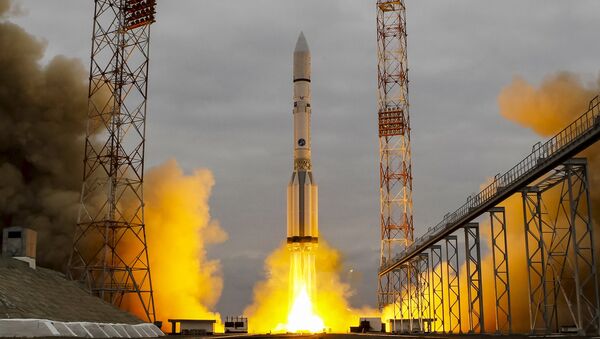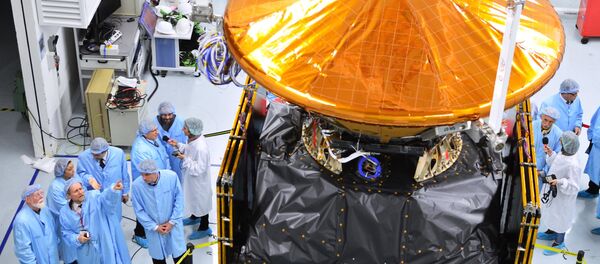"This joint mission with the European Space Agency is to some extent a response to those stupid political sanctions that are still in force against Russia," he said.
He also touted the March 14 launch of the mission from the Baikonur Cosmodrome in Kazakhstan as a big success.
"This project is an international achievement. The European Space Agency has long been working with us constructively, and at least this long-term work has successfully wrapped up," he added.
Russian professor Yegor Shcheglov, for his part, told Sputnik, that the current mission will add significantly to finding a way to resolve a whole array of challenges that a possible manned mission may face on the Red Planet.
"Radiation is the most serious hazard in outer space, something that is also in place on Mars. There is no such a strong magnetic field on the Red Planet which could protect people from being affected by radiation," Shcheglov said.
The European Space Agency and Roscosmos agreed to develop the ExoMars program in 2012 to investigate the atmosphere of Mars and explore possible traces of life on the Red Planet.
Monday's orbital probe launch is expected to be followed by a Mars rover probe in 2018.






